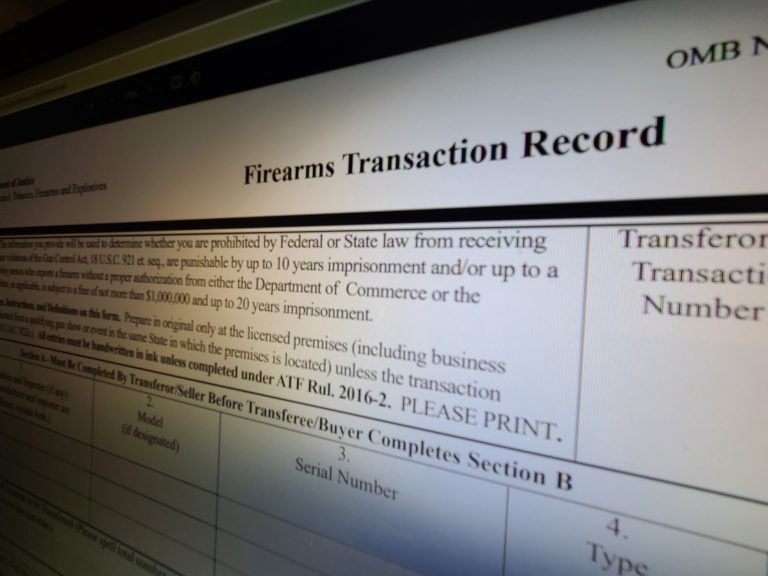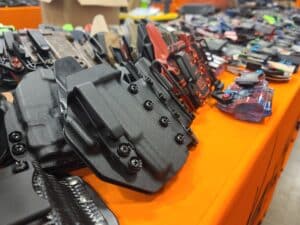California must stop sharing the personal identifying information of the state’s gun owners with academic researchers, a state judge has ruled.
San Diego Superior Court Judge Katherine Bacal issued a preliminary injunction against California’s Assembly Bill 173 on Friday. Judge Bacal noted that allowing the law to remain in effect while the case continued sufficiently threatened the privacy rights of California gun owners.
“Accordingly, plaintiffs have shown that the balance of harms weighs in favor of issuing the injunction,” she noted in her order.
The injunction represents a win for gun-rights advocates in their fight against the state’s attempts to share gun owners’ identifying information for outside research. The state already collects extensive data on gun and ammunition purchases–including an ammo registry. California’s practices make it an outlier, but one with the potential to be copied by other blue states seeking tighter gun laws. The successful injunction suggests advocates may be successful in permanently stopping the state from sharing that data with non-law enforcement entities and quash the potential for other states to follow California’s lead.
Assembly Bill 173, signed by Governor Gavin Newsom (D.) last September, directed the Attorney General to disclose personal information on gun purchasers to the California Firearm Violence Research Center at UC Davis. The information includes details such as the buyer’s name, address, date of birth, what they purchased, when and where they bought it, and more. It also authorized the center to share the information with any other “bona fide research institution.”
The now-blocked law is not the only time California officials have garnered controversy over how they handle gun owners’ private data. Earlier this June, The Reload broke news that the California Department of Justice had inadvertently leaked the names, racial identifications, home addresses, dates of birth, and permit classifications of the state’s concealed carry permit holders during a botched rollout of its 2022 Firearms Dashboard Portal. That information was made publicly available for download for several hours before eventually being scrubbed from the website. The state has since offered credit monitoring to all those it believes were affected by the leak.
Judge Bacal cited this incident as an example of the potential harm faced by gun owners if AB 173 were allowed to stay in effect.
“Defendant responds plaintiffs cannot establish irreparable harm because the personal identifying information has already been shared with researchers as recently as November of 2021,” she said. “Yet this does not account for the potential ongoing and future harms that could occur by continuous use of the information. Furthermore, and while this motion has been pending, a massive data breach reportedly occurred that leaked personal identifying information from the firearm databases for concealed carry applicants in or about June of 2022.”
A coalition of gun-rights groups, including the Firearms Policy Coalition (FPC), filed suit against the law in state court in January. The groups celebrated the injunction.
“The California government has proven time and time again that it can’t be trusted with the private personal information of its residents,” Bill Sack, FPC Director of Legal Operations, said in a press release. “Today’s ruling reinforces what FPC has been arguing all along; that you needn’t be forced to open your front door to immoral government intrusion in order to exercise your fundamental rights.”
California Attorney General Rob Bonta (D.) told The Reload that despite the ruling, he planned to continue defending the law in court.
“We are disappointed in this decision,” he said. “Research and collaboration would help protect our communities from gun violence and save lives. We will continue this fight in court.”
UPDATE 12:58 AM EASTERN 10-18-2022: This piece has been updated to include comment from Attorney General Bonta’s office.






